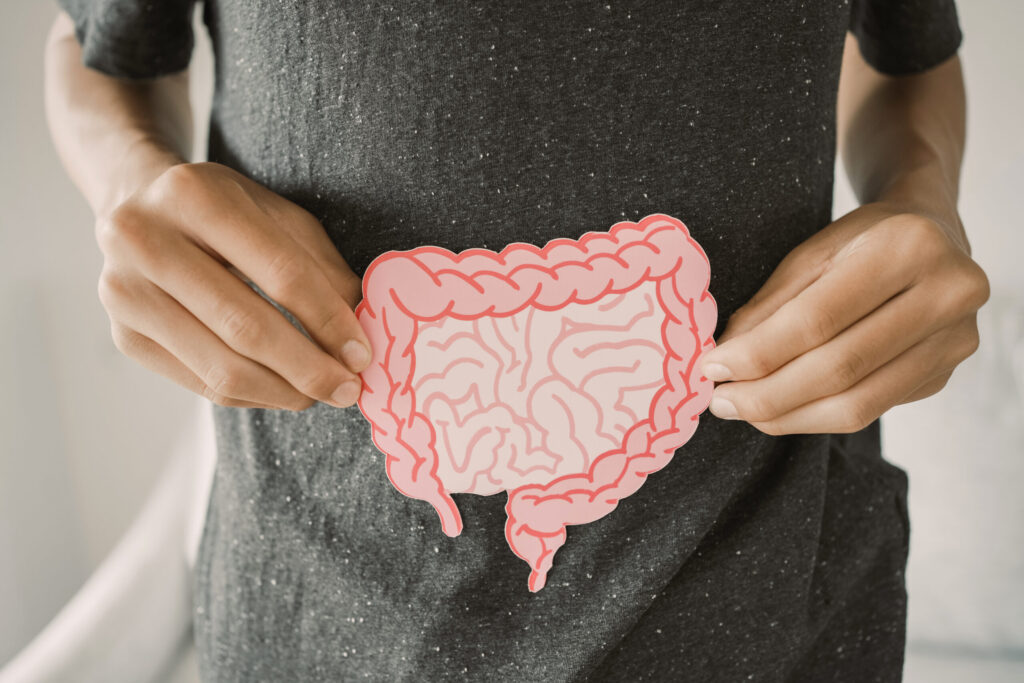
If you have recently been diagnosed with colorectal cancer or know someone who has been diagnosed, you probably have a lot of questions. The good news is that colorectal cancer is highly treatable—and often curable—in the early stages. Regular screenings can usually find cancer even when it is very small and hasn't spread to other parts of the body, improving the chances of it going into remission or being cured.
Colorectal cancer refers to both colon cancer and rectal cancer. They are grouped because the colon and rectum are made of the same tissues. They both make up the large intestine, although the colon is much longer. Colon and rectal cancer also have a lot in common and share similar symptoms. Colorectal cancer is often called colon cancer for short, and the terms may be used interchangeably.
Excluding skin cancers, colorectal cancer is the third most common cancer diagnosed in men and women. It is also the third leading cause of cancer-related deaths for both men and women. When the numbers for men and women are combined, it is the second most common cause of cancer deaths.
There are usually no symptoms of colon cancer in the early stages, which is why early detection is important. You should also be aware of your personal risk factors and how to reduce your risk.
What causes colon cancer?
Cancer is caused by changes in the DNA inside our cells. These changes are called mutations. DNA contains instructions for how cells should behave. Cells grow, divide, and die in a controlled process. But cancer cells grow out of control and divide into new abnormal cells. They also outlive normal cells.
The genetic changes that cause colon cancer happen during your lifetime, but the exact cause is unknown. However, certain inherited mutations can increase your risk.
Other factors that affect your risk of colon cancer include your lifestyle and environment. These can include:
- Heavy alcohol use
- Tobacco use
- Diet, including eating red meat, processed meat, and alcoholic beverages
- Smoking
- Being overweight or obese
There is strong evidence that the following factors can reduce your risk of colon cancer:
- Being physically active
- Eating whole grains, foods containing dietary fiber, and dairy products
- Taking calcium supplements
There is also some evidence that the following factors may decrease the risk of colon cancer:
- Eating foods that contain vitamin C
- Eating fish
- Taking multivitamin supplements
- Vitamin D intake
If you have an inflammatory bowel disease (IBD), you may have an increased risk of getting colon cancer. Inflammation of the colon that occurs with IBDs causes cells in the intestinal lining to develop more often. This can increase the chances of abnormalities that can lead to colon cancer.
What are the signs and symptoms of colon cancer?
Someone with colon cancer can have polyps and not know it. Polyps are abnormal growths that are usually harmless but can turn into cancer if not removed. They can be detected during screenings, so it’s important to get screened regularly according to recommendations.
If you do have symptoms of colon cancer, they may include:
- Changes in the size, amount, consistency, or frequency of bowel movements
- Rectal bleeding or blood in bowel movements
- Constipation, diarrhea, or feeling like you still need to empty your bowel
- Persistent aches, cramps, or pain in the abdomen
- Unexplained weight loss
Conditions other than cancer can cause these symptoms, so be sure to talk to your doctor to find out the true cause.
What are the screening recommendations for colon cancer?
The U.S. Preventive Services Task Force recommends that adults start getting screened for colon cancer at age 45. A colonoscopy is the gold standard for colon cancer detection. A doctor inserts a long, thin, flexible, lighted rod to check for polyps in the rectum and the entire colon. Colonoscopies are recommended every 10 years for people with an average risk of colon cancer.
A similar screening called a flexible sigmoidoscopy checks the rectum and lower part of the colon for polyps or cancer. It is recommended every five years for people with average risk. It may sometimes be preferred over a colonoscopy because the preparation and test take less time.
Other types of screenings for colon cancer include:
- A fecal occult blood test to check stool for blood that can only be seen with a microscope
- A DNA stool test to check DNA in stool cells for genetic changes
- A virtual colonoscopy that uses a series of X-rays to take multiple pictures of the colon
What are the treatment options for colon cancer?
Colon cancer treatment depends on the stage and extent of the disease. Your medical history and overall health can also play a role in determining your treatment plan.
Treatment options include:
- Surgery to remove tumors or the affected section of the colon
- Immunotherapy to help the immune system destroy cancer cells
- Chemotherapy to destroy cancer cells or prevent them from growing and reproducing
It can be hard to hear you’ve been diagnosed with colon cancer. But early detection increases the chances that colon cancer can be treated or even cured. If you are worried about your risk of colon cancer, talk to your doctor.
Resource Links:
"Key Statistics for Colon Cancer" via American Cancer Society
"Colorectal cancer" via World Cancer Research Fund International
"The Risk of Colorectal Cancer in Crohn’s Disease and Ulcerative Colitis Patients" via Crohn's & Colitis Foundation
"What are the Symptoms of Colorectal Cancer?" via Centers for Disease Control and Prevention
"Colorectal Cancer: Screening" via U.S. Preventive Task Force
"Colorectal cancer treatment" via City of Hope






